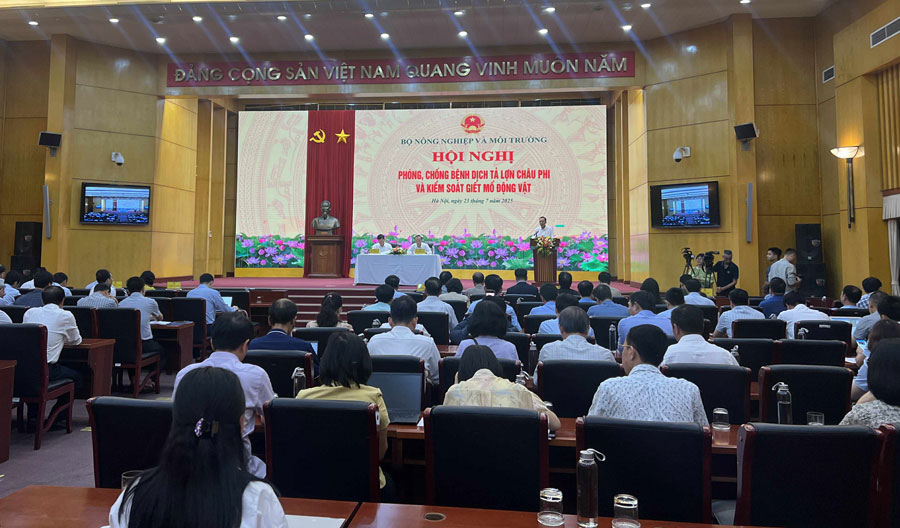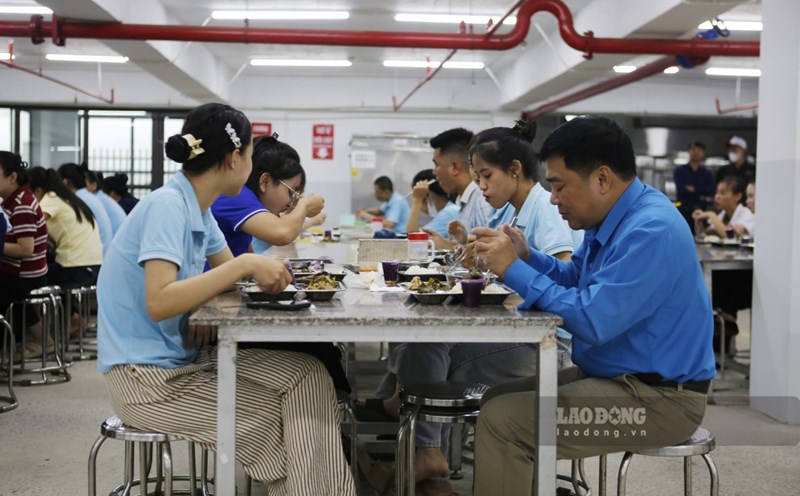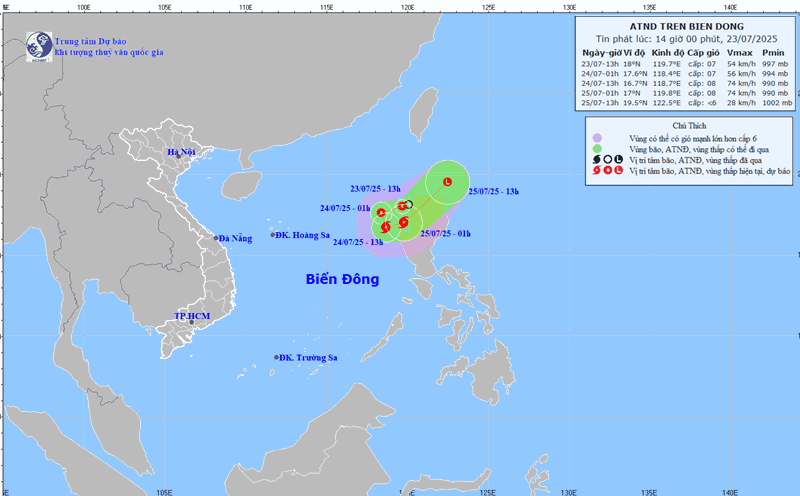Difficulties in disease prevention and control
On the morning of July 23, the Ministry of Agriculture and Environment (MONRE) held a Conference on Prevention and Control of African swine fever and Control of animal slaughter.
According to Mr. Phan Quang Minh - Deputy Director of the Department of Animal Husbandry and Veterinary Medicine, from the beginning of the year to July 22, the whole country had 636 outbreaks in 30/34 provinces and cities, the number of sick pigs was 42,349, the number of dead pigs, the number of forced destruction was 43,455. Currently, there are 256 outbreaks in 26 provinces and cities that have not passed 21 days. In June and July 2025, African swine fever epidemics will increase in the northern provinces (Cao Bang, Lang Son, Tuyen Quang, Hanoi...) and the central coast (Quang Ngai, Quang Tri...).
According to the Department of Animal Husbandry and Veterinary Medicine, the risk of further outbreaks and spreads in the coming time is very high, mainly due to the fact that small-scale livestock farming is still quite common, accounting for a high proportion, and does not ensure biosafety.
Although there is an African swine fever vaccine to prevent disease in pigs, many farmers are still subjective and do not vaccinate. The phenomenon of cattle farmers hiding epidemics, selling pigs, and dumping carcasses into the environment has caused the epidemic to spread. The weather has changed erratically, especially now that the rainy and stormy season has entered in the Northern provinces, combined with the phenomenon of farmers and shippers lacking awareness of throwing sick pigs into rivers, canals... causing the virus to spread through water, causing environmental pollution.


animal slaughter has not been thoroughly controlled, some slaughterhouses violate veterinary laws, still collect and slaughter diseases and suspected diseases. The local veterinary force, especially commune-level veterinary medicine, is very thin and the application of sanctions to punish violations of the law in disease prevention must be carried out more regularly and strictly.
73% of small-scale slaughterhouses are not licensed
According to statistics from the Department of Animal Husbandry and Veterinary Medicine, there are currently 24,858 small-scale slaughterhouses nationwide, of which 18,102 (accounting for 73%) do not have business registration certificates and are not allowed to operate by local authorities.
According to the representative of the Department of Agriculture and Environment of Phu Tho province, the whole province has about 2,200 slaughterhouses, of which only 8 are allowed to carry out slaughter control according to regulations.
The representative of the Department of Agriculture and Environment of Dong Nai province also admitted that the situation of small-scale slaughter and unsanitary conditions at markets and establishments without permission is still common. Meanwhile, centralized slaughterhouses have been invested in and operate below capacity, reducing the effectiveness of controlling animal slaughter.
In the coming time, the Ministry of Agriculture and Environment will arrange land funds and issue specific policies to call for and encourage organizations and individuals to invest, build new or convert to industrial or semi- industrial slaughterhouses to ensure veterinary hygiene and food safety.
In case of difficulty in calling for the construction of industrial or semi-industrial slaughterhouses, the ministry will propose that provinces and cities organize the construction of slaughterhouses. After being formed and put into operation, direct relevant agencies and commune-level People's Committees to be responsible for developing roadmaps, directing relevant agencies to mobilize and have solutions to thoroughly remove small-scale, spontaneous slaughterhouses and resolutely handle facilities that do not ensure food hygiene and safety.
In particular, developing regulations on coordination between the government and the Forestry and Veterinary Forces, Health, Police, Market Management... in the management of slaughterhouses for slaughterhouses and animal transportation. Regularly exchange information and coordinate promptly when handling cases related to the management of transportation and slaughter of food-safe animals for livestock and poultry.
"We have to review, we cannot let the situation get worse. There must be sanctions for small-scale unlicensed slaughter, and must be followed up to thoroughly handle. The damage caused by the epidemic is huge, directly affecting socio-economic development, I suggest that we must be close, strict and serious in preventing African swine fever in accordance with the spirit of Official Dispatch 119/CD-TTg signed by the Prime Minister", Deputy Minister Phung Duc Tien concluded at the conference.











